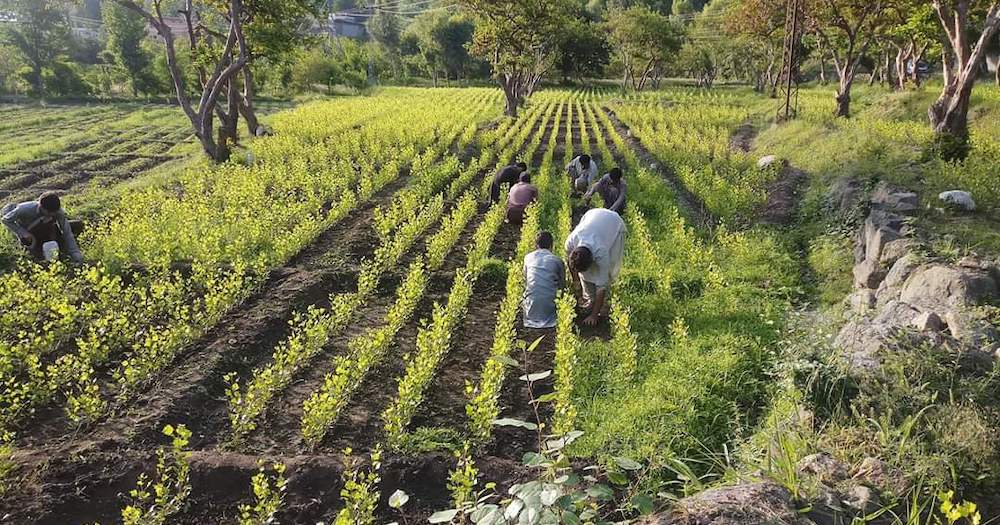Since Pakistan's lockdown began on March 23, unemployed day labourers, who rely on daily wages to support themselves, in the country have been given new jobs to plant trees.
As part of the country's 10 Billion Tree Tsunami programme, more than 63,600 jobs have been created during the lockdown as unemployed workers have been hired as "jungle workers", reported Al Jazeera.
Addressing unemployment & climate change
Following the spread of Covid-19 in Pakistan, the 10 Billion Trees programme was initially put on hold as part of the country's social distancing efforts, mentioned Al Jazeera.
According to a recent publication by Pakistan Institute of Development Economics (PIDE), approximately 19 million individuals could risk losing their sources of income.
This includes street vendors, daily-waged workers, and short-term production dependent employees.
To address this, the prime minister granted an exemption in April to allow the forestry agency to restart the tree planting programme and create over 63,600 jobs, according to Al Jazeera.
Pakistan is vulnerable to extreme weather
According to the Global Climate Risk Index by Germanwatch, Pakistan reported 152 extreme weather events, such as floods and heatwaves, between 1999 and 2008.
This cost the nation close to US$3.8 billion (S$5.39 billion) in economic losses.
Environmentalists have pushed for reforestation as a mitigate the effects of climate change as forests help to prevent flooding, stabilise rainfall, protect wildlife, reduce temperatures and absorb heat-trapping greenhouse gases, said Al Jazeera.
WWF highlighted that Pakistan is a "forest poor" nation where trees cover less than 6 percent of the total area.
As a response to the threat of climate change, the Prime Minister of Pakistan, Imran Khan, launched the 10 Billion Trees project, a five-year tree-planting programme that followed the success of an earlier programme started in 2014, according to Al Jazeera.
Aims to plant 50 million trees in 2020
Since the start of the programme in 2018, approximately 30 million native tree saplings have been planted in Punjab, Pakistan, and includes crops such as mulberry, acacia and moringa.
This year, the project aims to plant 50 million trees, Al Jazeera reported.
While planting season usually ends in May, the initiative will be extended to the end of June to ensure that workers are kept employed.
Most of the new jobs are being created in rural areas, and there is a focus on hiring women and unemployed daily workers who were migrating home from locked-down cities.
A lot of the work is near the capital Islamabad and other tracts of state-owned forest land around the country, mentioned Al Jazeera.
The work pays between 500 to 800 rupees per day (S$4.40 to S$7) a day, and tasks include working in plant nurseries, planting tree saplings, and working as forest rangers.
While at work, workers are asked to wear masks and practise social distancing.
30,000 saplings planted at 58 different sites over the last two months: WWF Pakistan
According to the World Wildlife Fund for Nature (WWF) Pakistan, labourers who lost their income due to Covid-19 have been able to make a living through tree planting to feed their families.
In a Facebook post, WWF Pakistan revealed that over 30,000 saplings have been planted at 58 different sites over the last two months in Punjab, Pakistan.
Here's the full post:
Top image via Ten Billion Tree Tsunami/Twitter
If you like what you read, follow us on Facebook, Instagram, Twitter and Telegram to get the latest updates.
